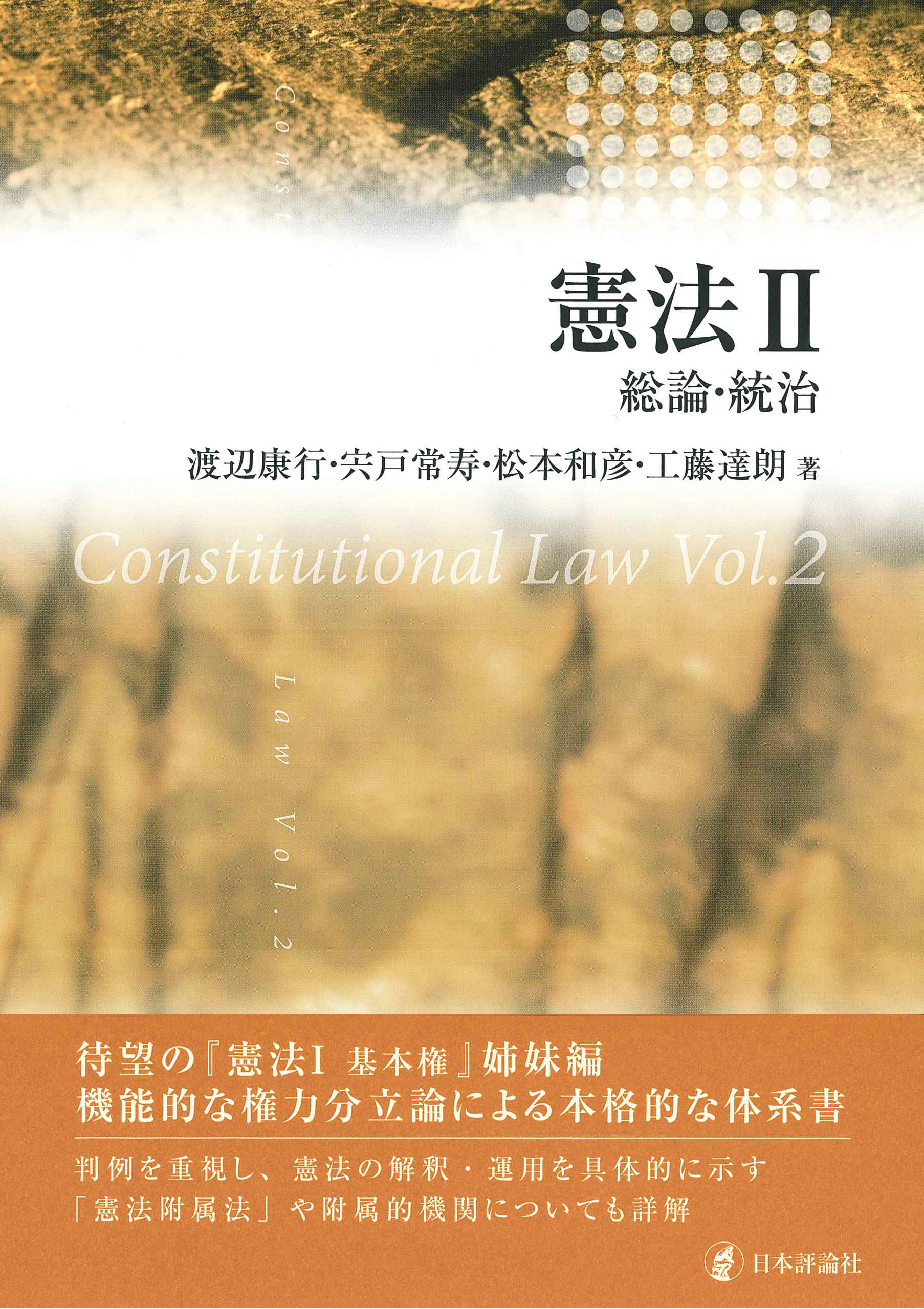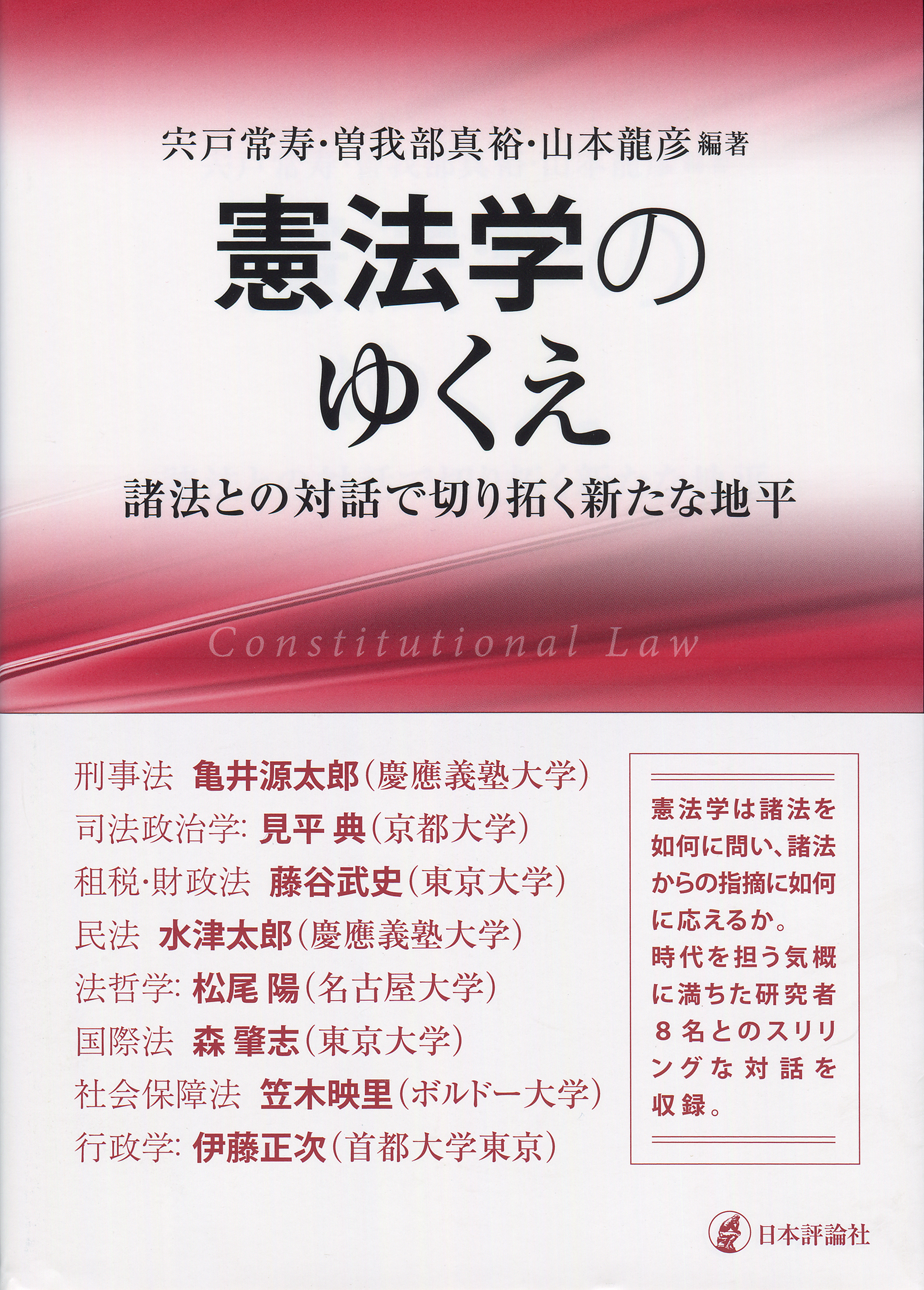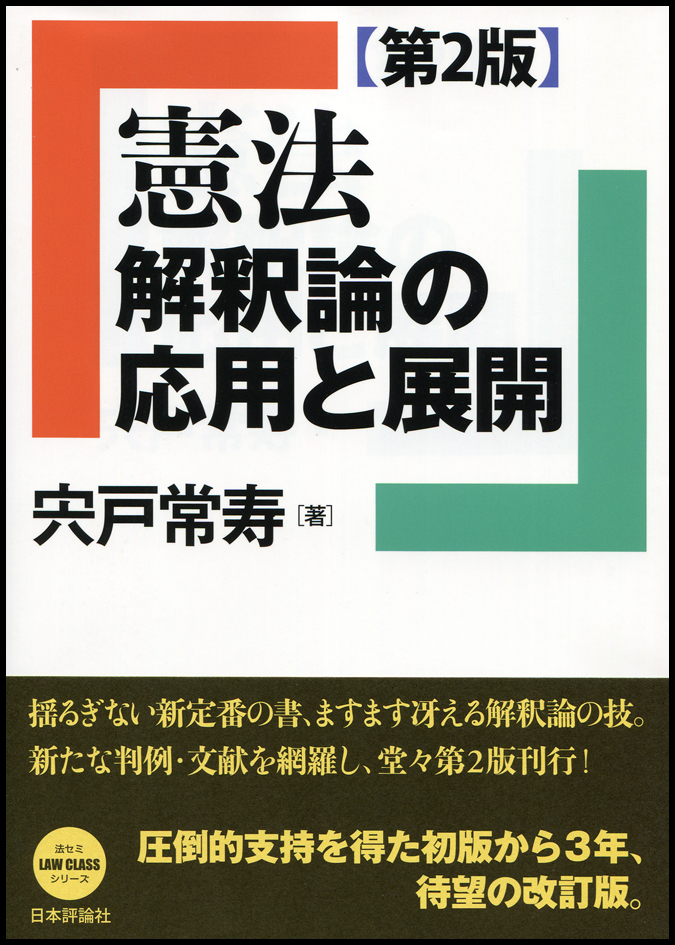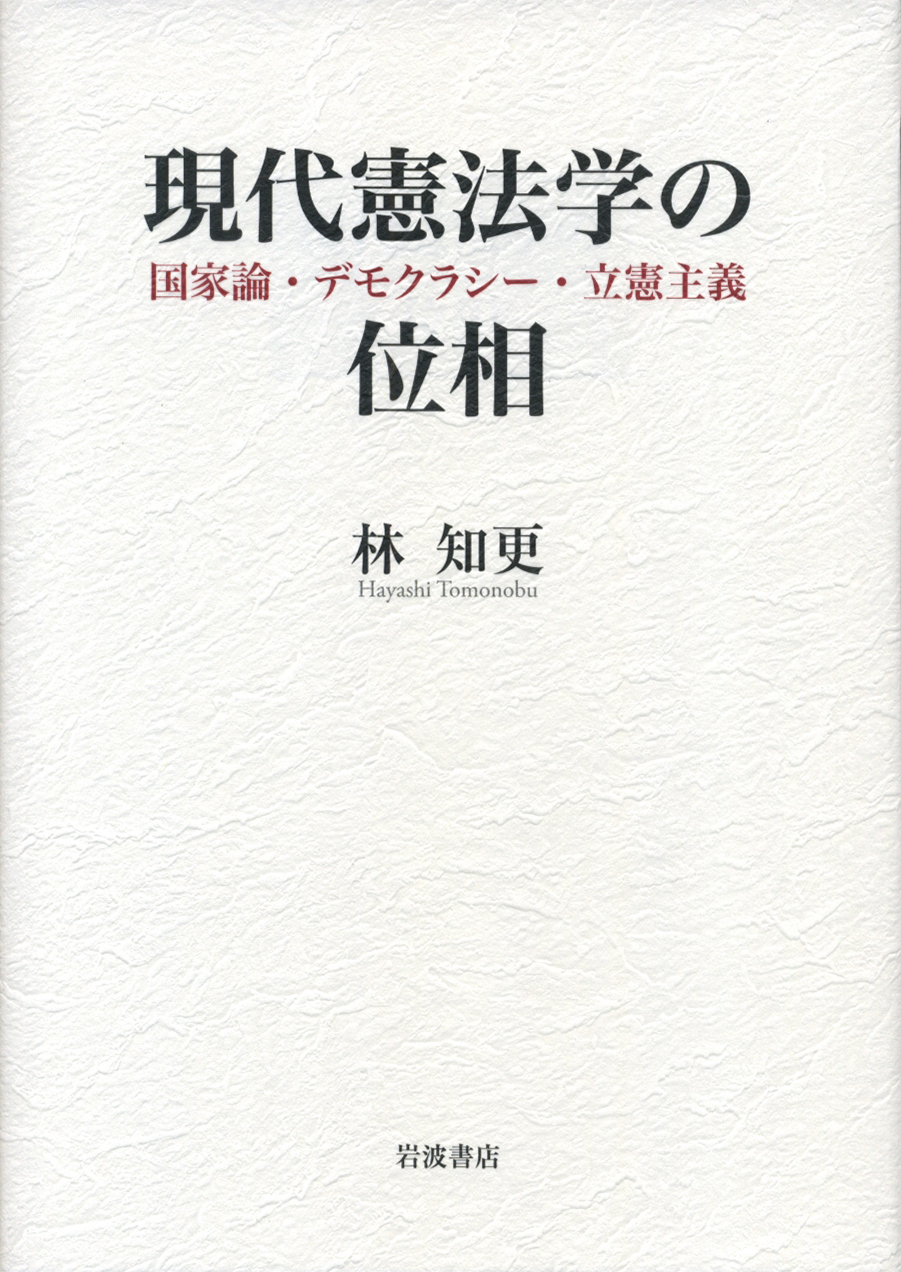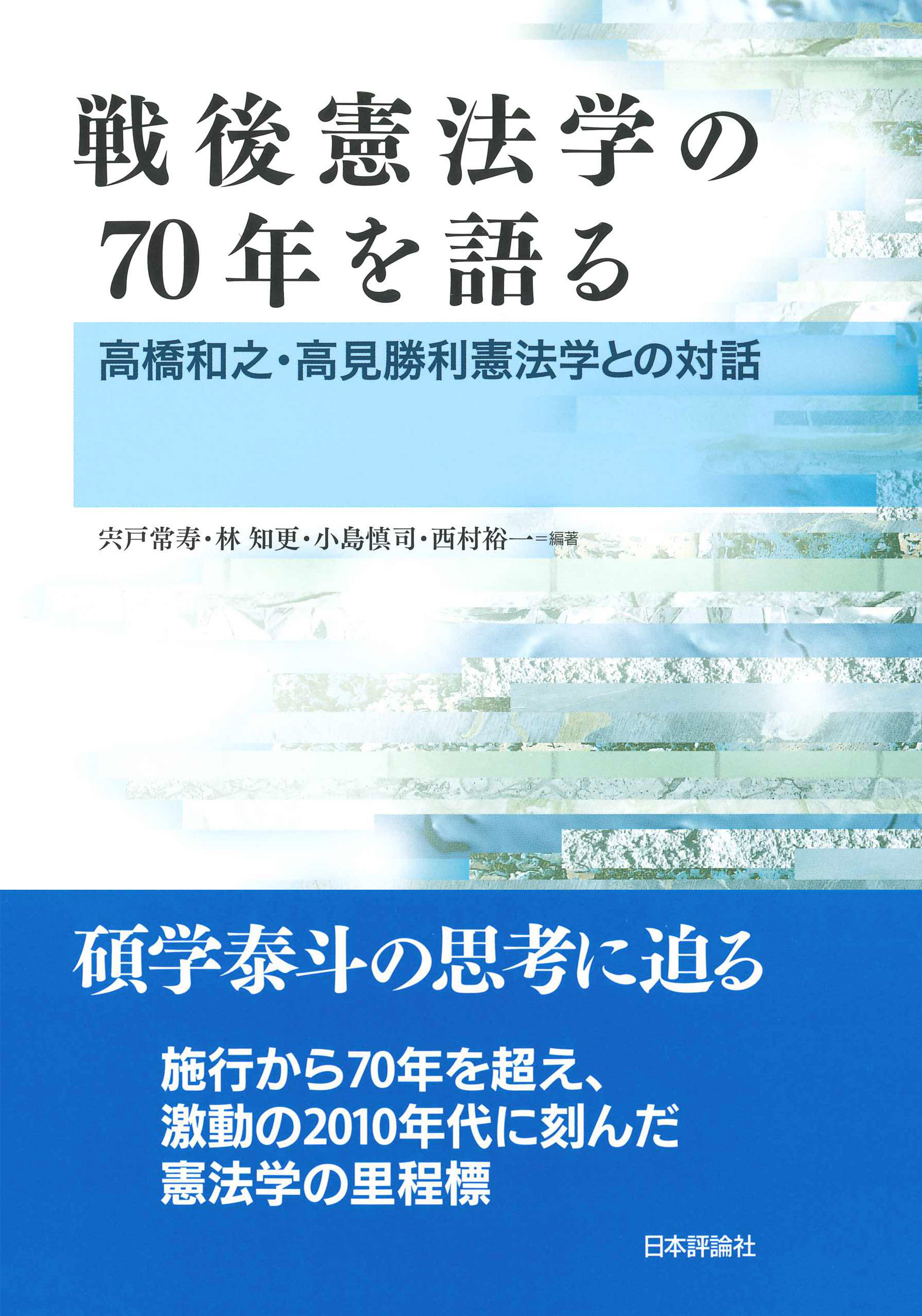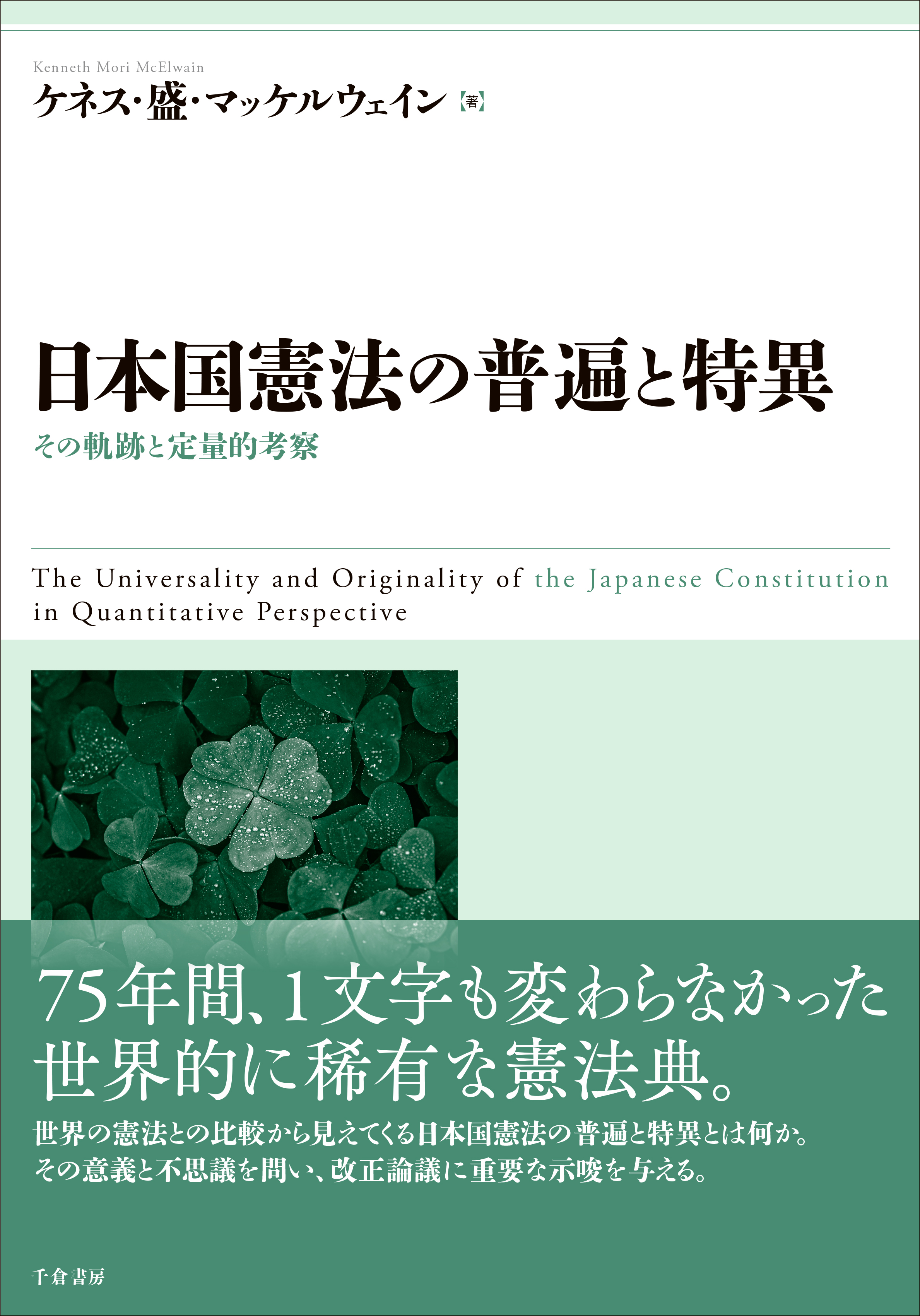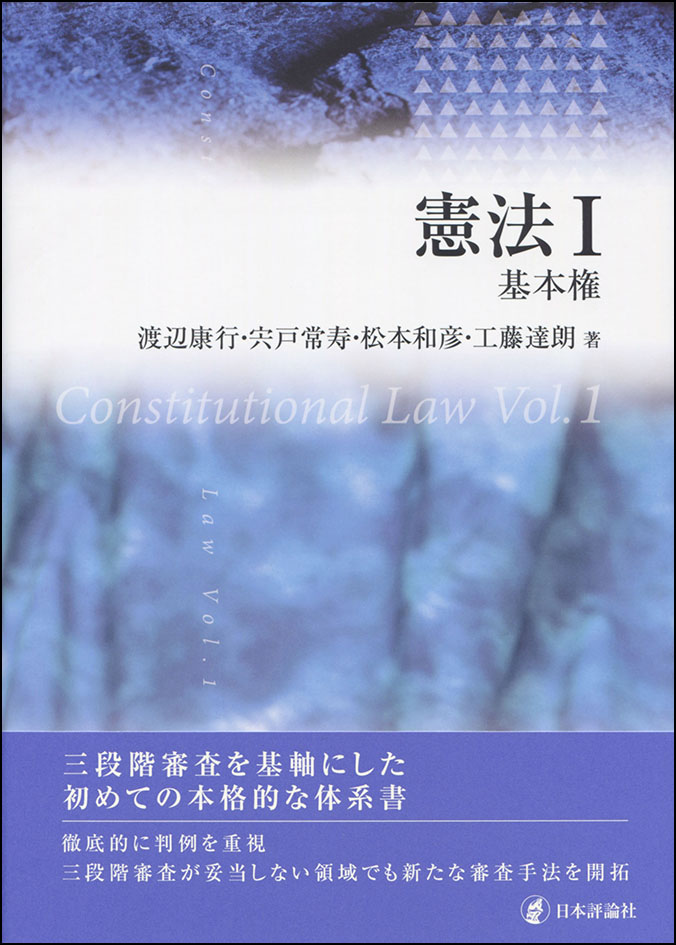
Title
Kenpo I (The Constitution I: Basic Rights)
Size
512 pages, A5 format
Language
Japanese
Released
April, 2016
ISBN
978-4-535-52060-8
Published by
Nippon Hyoron sha co., Ltd.
Book Info
See Book Availability at Library
Japanese Page
Constitutional Law is composed of three parts: principles of the constitution, basic human rights, and governing system. The current volume is a textbook on the area of basic human rights written by four authors including myself.
There are many constitutional law textbooks, in particular, on basic human rights. The current volume clearly differs from other publications in one point, in addition to taking into account new judicial precedents and recent trends in human rights: that is, its consistent attitude to interpreting basic human rights guaranteed by the Constitution of Japan with reference to German constitutional theory. This attitude is manifest in the subtitle of the book, “Basic Human Rights” (Grundrecht), which refers to basic human rights in Germany.
Conventionally, in the study of constitutional law in Japan, two interpretations of basic human rights drawing from judicial precedents in the United States have been proposed. This is most clearly expressed in the “double standards theory” of Professor Nobuyoshi Ashibe, who lectured on constitutional law at this university. This idea starts from the division of authority between the determination of constitutionality and politics or a functional relationship. Against this view, researchers of German constitutional law have recently raised the point that we must comprehend human rights in a substantial manner in order to build a more precise interpretation. This is an attempt to clarify the limitation of human rights through three phases: the scope of rights protection, constraints on rights, and justification of constraints on rights. It has been argued that this type of structuralization of judgment is close to the patterns of thinking in other legal fields, and it allows us to understand the judgment by the Supreme Court of Japan more inherently.
The debate over whether it is “the double standards” or “three-phase examination” is currently ongoing in constitutional law and law school education in particular. However, not enough efforts have been made to outline judicial precedents and theories in Japan as a coherent whole drawing from the outcomes of the study of German constitutional law and to present them to the practitioners and at the site of specialist education. The current volume has been published in order to fill this lacuna by way of more than twenty meetings of researchers of German constitutional law including myself and an examination of each other’s contribution to the volume.
I need to make a hasty correction to “including myself.” My co-authors are indeed the researchers who have led the study of German constitutional law, but I am of the subsequent generation. The assistant thesis I submitted to the university was written from a rather American perspective on the Constitutional Court and politics in the German Constitution (Joji Shishido, The Dynamics of the Rights of the Constitutional Court, Koubundou, 2005). Not having been actively engaged with research into German constitutional law, I found the preparatory phase of the current volume in which I worked with my co-authors from older generations a very enjoyable occasion to learn. In particular, Chapter 10 on freedom of expression; Chapter 11 on economic freedom; and Chapter 12 on rights to private property, which I wrote, are the areas in which interpretation drawing from the double standards theory is established. They are experimental in that sense and raise academic questions as to what it would be like if it is explained in the German way.
The most serious problem with the current volume is the delay in publication of The Constitution II, which deals with constitutional principles and those of the governing system. I am very sorry for the reader who waits for the publication of the second volume. We will do our utmost to ensure that both volumes can be presented for your comments as soon as possible.
(Written by SHISHIDO George, Professor, Graduate Schools for Law and Politics / 2018)



 Find a book
Find a book


